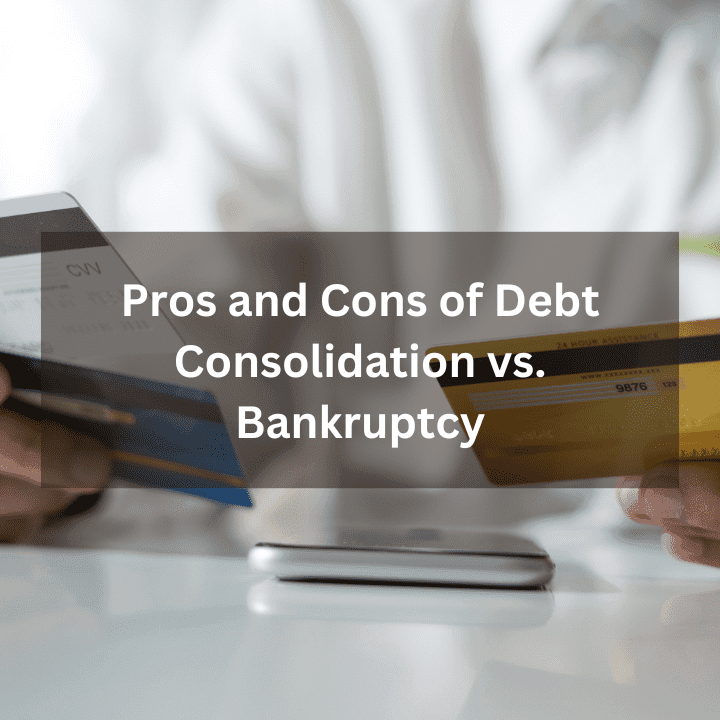
If you are having trouble paying your creditors, you might consider either debt consolidation or bankruptcy. One of these remedies makes use of the court and lawyers (bankruptcy), while the other is entirely private (debt consolidation). The goal is the same, but the paths are distinct.
Debt consolidation creates one new loan (or line of credit) with a lower interest rate and a lower monthly payment or payoff amount. With that new loan, the debt consolidation company pays off your existing loans or services them. Typically, the company works out a plan with your creditors so that you can have one affordable payment. If everyone in the process does what they should, no problems should arise, provided that your income remains stable for the life of the consolidated loan.
There are certain risks to taking the debt consolidation path:
- The debt consolidation company might fail to satisfy existing creditors, leaving them with the legal ability to come after you.
- You might not get a lower rate or payment once you add in the fees charged by the debt consolidator.
- Your income might decrease or get interrupted, putting you back in danger of default.
- You could spend time and money and not find adequate debt relief. There is no court oversight of the parties involved.
- You might find you cannot make your payments, thereby making a difficult situation worse.
Some of these risks may be remote, but if they seem like real possibilities in your situation, then filing for bankruptcy might be the better alternative. In either a Chapter 7 or a Chapter 13 bankruptcy, the court immediately, upon filing, issues an automatic stay that requires your creditors to discontinue collection activities. The stay remains in effect throughout the bankruptcy case unless it is lifted by court order.
In a Chapter 7, the bankruptcy trustee will sell off whatever nonexempt assets you have in order to partially repay creditors and you will no longer owe anything (unless you incurred additional debt after filing the bankruptcy). Often, debtors in Chapter 7 get to keep all of their assets. In a Chapter 13, you agree to repay your unsecured creditors a portion of the debt you owe them over a three-year or five-year period, with the rest of the debt then being discharged. Secured debts like mortgages remain due and owing, but the Chapter 13 plan can free up more of your income to devote to paying off these debts.
An experienced Georgia bankruptcy attorney will help you decide whether debt consolidation or bankruptcy is the preferable form of debt relief in your circumstances, and which type of bankruptcy is right for you.
Jeff Field & Associates is a full-service bankruptcy and debt relief firm with six locations in the Atlanta, Marietta, and Athens areas of Georgia. Contact us online or call 404-381-1278 for a free initial consultation.
Please fill out the form below and one of our attorneys will contact you.





